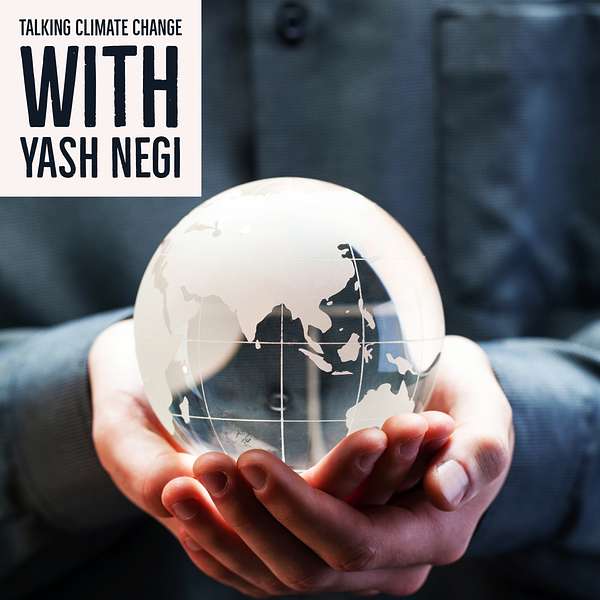
Talking Climate Change with Yash Negi
My name is Yash Negi, I am a CSE student. I am studying on climate change from 2018 and I have decided to come with my own podcast channel on climate change which is "Talking Climate Change with Yash Negi." This podcast is very different from the other podcast as you will hear only me telling you about each and every single topic associated with climate change. You can follow me on Twitter for daily climate change news, and you can give me suggestions to improve my podcast on the email ID given below. Along with the podcast I do have my website in which I post my blogs on climate change and technology.Twitter: https://twitter.com/realyashnegiEmail: yashnegi492@gmail.com
Talking Climate Change with Yash Negi
Episode 31: Role of Methane in Climate Change
In this episode of the podcast, I have talked about the role of “METHANE” in climate change.
Topics Covered:
- Introduction
- Importance of Methane
- Global budget of Methane
- Main Sources of Methane
- Wetlands, Geological Methane, Termites, Vegetation, Biomass burning, Rice cultivation, Ruminants, Manure and wastewater, Landfills, Fossil energy
- Global Warming Potential
- Global Temperature Change
- Joshua Dean answers question regarding Methane
Additional Info:
Methane appears to play an increasing role in on-going anthropogenic climate change, particularly in light of the slowdown of CO2 fossil fuel emissions over the past three years. Methane emissions from increasing agricultural activities seem to be a major, possibly dominant, cause of the atmospheric growth trends of the past decade. The rapid increase in methane concentrations offers a growing mitigation opportu- nity, acknowledging the need to balance food security and environmental protection. Keeping global warming below 2 °C is already a challenging target, with most of the attention placed primarily on CO2 emissions. Such a target will become increasingly difficult if reductions in methane emis- sions are not also addressed strongly and rapidly. Despite important uncertainties in methane sources and sinks, the recent increase in methane concentra- tions suggests a dominant anthropogenic contribution (either biogenic or thermogenic). Methane therefore offers growing opportunities for climate change miti- gation that could allow a return to lower emission trajectories such as RCP6 or RCP4.5. Because of methane’s high global warming potential and short lifetime in the atmosphere compared to CO2, its mitigation offers the possibility to slow climate change efficiently in a shorter time horizon. In addition to climate benefits, reducing methane emissions could help improve human health and crop production through simultaneous reductions in ozone production and provide business and employment opportunities. Most of methane’s natural emissions come from a soggy source: wetlands, which includes bogs. Many microbes are like mammals in that they eat organic material and spit out carbon dioxide—but many that live in still, oxygen-deprived spots like waterlogged wetland soils produce methane instead, which then leaks into the atmosphere. Over all, about a third of all the methane floating in the modern atmosphere comes from wetlands. In the modern atmosphere, methane concentrations have risen by more than 150 percent since 1750.
Follow me on Twitter for daily climate change news and feel free to email me regarding suggestions to improve and how do you feel listening to my podcast. I would like to say to you all that please leave some feedback in whatever platform you are listening to this podcast, it will help me to see if you are liking it or not.
Twitter: https://twitter.com/realyashnegi
Website: climatology.in
Email: yashnegi@climatology.in
Song: Ikson - New Day (Vlog No Copyright Music)
Music provided by Vlog No Copyright Music.
Video Link: https://youtu.be/cVA-9JHwbFY